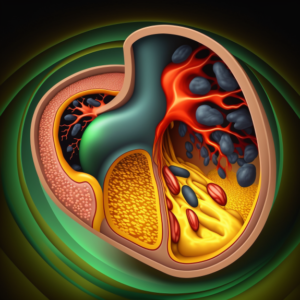
Welcome to the wonderful world of long words! English contains some of the longest words out there, known as sesquipedalianisms (a word meaning “a long word or phrase”).
We’ve all heard of words like antidisestablishmentarianism, but did you know there are even longer words out there? Here, we’ll take a look at the longest words in the English language, from the somewhat manageable to the downright unpronounceable. So grab a dictionary, because you’ll need it before this article is through!
A quick caveat here, technically the 3 longest words in the English language are a bit strange and often not actually counted as the longest words. The first one, a chemical, is abbreviated as Methionylthreonylthreonylglutaminylalanyl…isoleucine simply because it’s an astounding 189,819 letters long! People have tried speaking the word out loud and it’s taken over 2 hours…for 1 word! The second technically longest word is another chemical, but a bit more reasonable. It’s abbreviated as Methionylglutaminylarginyltyrosylglutamyl…serine and comes in at 1,909 letters. Lastly, we have a transliteration of an ancient greek word for a fictional dish, which was published in a novel. It’s abbreviated as Lopadotemachoselachogaleokranioleipsano…pterygon and isn’t usually included since it’s not really an English word.
Now that those caveats are out of the way, let’s go on a journey of discovery and see what the longest words in the English language really are.
My personal favorite is #3. You’ll see why!
The 32 Longest Words in the English Language
1. Pneumonoultramicroscopicsilicovolcanoconiosis (45 letters):
A lung disease caused by the inhalation of very fine silicate or quartz dust.
2. Supercalifragilisticexpialidocious (34 letters):

A nonsense word from the 1964 Disney film Mary Poppins.
3. Hippopotomonstrosesquippedaliophobia (30 letters):
Excessive fear of long words.
4. Floccinaucinihilipilification (29 letters):
The act of describing or regarding something as valueless.
5. Antidisestablishmentarianism (28 letters):
Opposition to the disestablishment of the Church of England.
6. Honorificabilitudinitatibus (27 letters):
The state of being able to achieve honors.
7. Thyroparathyroidectomized (27 letters):
Having undergone thyroid and parathyroid surgery.
8. Pseudopseudohypoparathyroidism (27 letters):
A genetic disorder characterized by the absence of parathyroid hormone response.
9. Dichlorodifluoromethane (27 letters):
A colorless, odorless, nonflammable gas used as a refrigerant and aerosol propellant.
10. Electronegativity (26 letters):

The tendency of an atom to attract electrons to itself.
11. Spectrophotometrically (26 letters):
The process of measuring the amount of light absorbed or reflected by a material.
12. Counterrevolutionaries (26 letters):

Those who oppose or attempt to overthrow a revolution.
13. Interoperability (26 letters):
The ability of different computer systems to exchange and make use of information.
14. Transubstantiation (25 letters):
The Christian doctrine that the bread and wine used in Communion become the body and blood of Christ.
15. Chromolithograph (25 letters):
A print made by the process of chromolithography.
16. Neuropsychiatrist (25 letters):
A doctor who specializes in the diagnosis and treatment of mental disorders.
17. Photosynthesizing (25 letters):

The process of converting light energy into chemical energy.
18. Oxytocinergic (25 letters):
A type of nerve cell that produces oxytocin, a hormone involved in childbirth and lactation.
19. Deinstitutionalized (25 letters):
Having been removed from a hospital or other institutional setting.
20. Parasympathomimetic (25 letters):
A drug or other agent that mimics the action of the parasympathetic nervous system.
21. Psychophysiological (25 letters):
Relating to the relationship between the mind and body.
22. Immunoelectrophoresis (25 letters):
A laboratory technique used to separate antigens or antibodies in a sample.
23. Hypercholesterolemia (25 letters):

An excess of cholesterol in the blood.
24. Anticonvulsant (25 letters):
A drug used to prevent or treat seizures.
25. Intravenous (25 letters):
Administered directly into a vein through a needle or catheter.
26. Uncomplimentary (25 letters):
Not expressing approval or admiration.
27. Transthoracically (25 letters):
Through the chest wall.
28. Glucocorticosteroid (25 letters):
A type of steroid hormone that affects the metabolism of carbohydrates, proteins and fats.
29. Methylphenidate (25 letters):
A stimulant drug used to treat attention deficit hyperactivity disorder (ADHD).
30. Cholinesterase (25 letters):
An enzyme that breaks down acetylcholine, a neurotransmitter involved in memory and learning.
31. Immunotherapeutic (25 letters):

The use of substances to stimulate the body’s immune system to fight a disease.
32. Electrophoretically (25 letters):
The process of separating components of a solution by passing an electric current through it.
I hope you enjoyed this list of the 32 longest words in the English language. I’m sure you found what you were looking for, especially if you’re a fan of sesquipedalianism, you long-word-loving maniac, you.
You might also be interested in seeing the 17 best children’s books to read and learn from in 2023.




